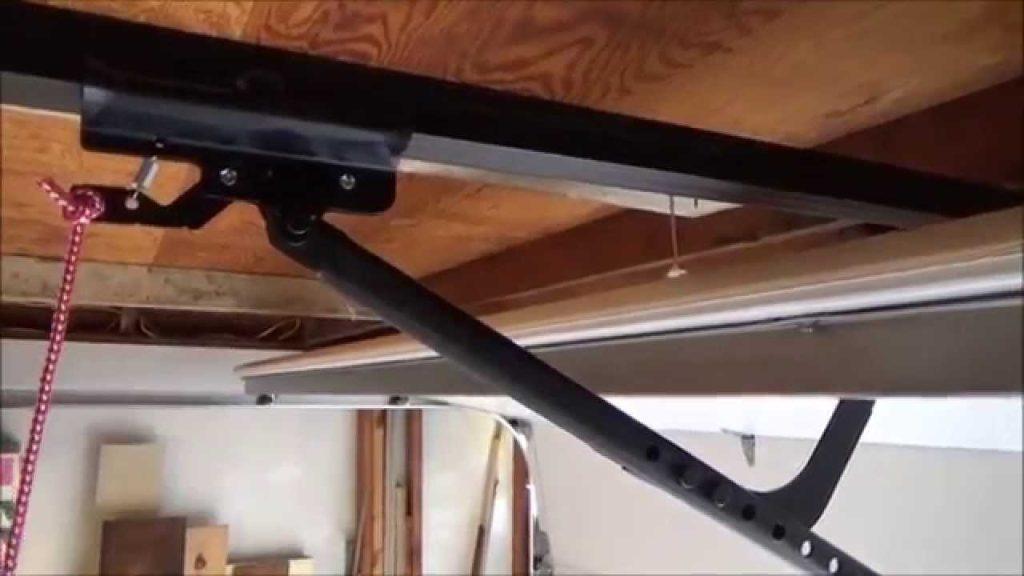A Liftmaster garage door off track is not just an inconvenience; it’s also a safety hazard. When your garage door becomes misaligned, it can compromise the security of your home and pose a risk to anyone nearby. Understanding the causes and knowing how to address this issue is essential for maintaining the functionality and safety of your garage door. In this guide, we’ll explore everything you need to know about dealing with a Liftmaster garage door off track, from identifying the problem to implementing effective solutions.

Understanding the Liftmaster Garage Door Off Track Issue
Before delving into solutions, it’s crucial to understand what causes a Liftmaster garage door to go off track. Several factors can contribute to this problem, including:
- Broken or Worn-Out Rollers: Over time, the rollers that guide the garage door along the tracks can become worn out or damaged, causing the door to become misaligned.
- Obstructions in the Tracks: Objects or debris in the tracks can prevent the rollers from moving smoothly, leading to the door coming off track.
- Loose or Misaligned Tracks: If the tracks that guide the garage door are loose or misaligned, the door may veer off track during operation.
- Damaged or Broken Cables: The cables that help lift and lower the garage door can become damaged or broken, causing the door to become unbalanced and go off track.
Signs of a Liftmaster Garage Door Off Track
Identifying when your Liftmaster garage door has gone off track is essential for prompt resolution. Some common signs include:
- Uneven Movement: If one side of the garage door appears higher or lower than the other during operation, it may indicate that the door is off track.
- Visible Gaps: Check for gaps between the door and the tracks or misalignment along the tracks themselves, which can indicate that the door has come off track.
- Difficulty Opening or Closing: If the garage door struggles to open or close smoothly or gets stuck along the tracks, it may be off track.
Read too: Mastering the Art of How to Open a Garage Door Safely and Efficiently
Liftmaster Garage Door Off Track: Troubleshooting and Solutions
Follow these steps to troubleshoot and address a Liftmaster garage door off track:
Step 1: Inspect the Tracks
Start by visually inspecting the tracks to ensure they are free from obstructions and debris. Use a level to check for any signs of misalignment or warping along the tracks.
Step 2: Check the Rollers and Cables
Inspect the rollers and cables for any signs of damage or wear. Replace any worn-out rollers or damaged cables to ensure smooth operation and prevent future issues.
Step 3: Tighten Loose Hardware
Check for any loose bolts or screws along the tracks and hardware holding the tracks in place. Tighten any loose hardware to ensure that the tracks are secure and properly aligned.
Step 4: Align the Tracks
If the tracks are misaligned, use a rubber mallet to gently tap them back into place. Use a level to ensure that the tracks are straight and properly aligned before tightening any bolts or screws.
Step 5: Test the Garage Door
Once you’ve addressed any issues with the tracks, rollers, and hardware, test the garage door to ensure that it opens and closes smoothly along the tracks. Listen for any unusual noises or signs of strain during operation.
Conclusion
Dealing with a Liftmaster garage door off track can be daunting, but with the right knowledge and techniques, you can address the issue effectively. By following the troubleshooting steps outlined in this guide, you can restore your garage door to proper alignment and ensure the safety and functionality of your home.
Remember, if you encounter any difficulties or feel unsure about performing repairs yourself, it’s always best to consult a professional garage door technician. With their expertise and experience, they can diagnose the problem accurately and implement the necessary repairs to get your garage door back on track.



Leave a Reply